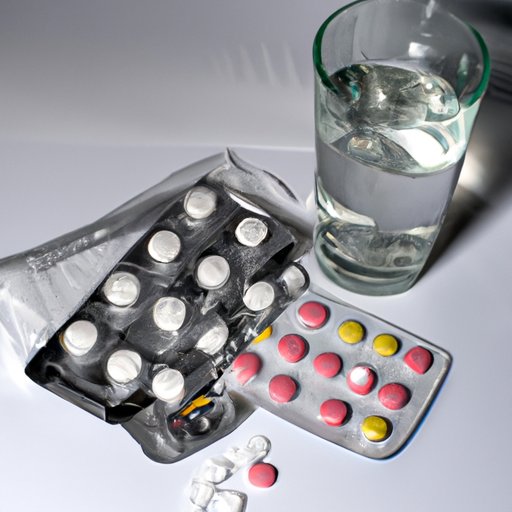
How to Break a Fever Fast: Tips and Advice
Fevers are a common problem that people often face. A fever is a sign that your body is fighting an infection or illness, and in most cases, it’s a natural response to a foreign invader. Although fevers are not usually a cause for concern, it’s important to learn how to break them quickly, especially if they are causing discomfort or hindering your ability to do daily activities. In this article, we’ll provide tips and advice on how to break a fever fast.
Use Over-the-Counter Medications
Using over-the-counter medications such as acetaminophen and ibuprofen can be effective in breaking a fever. These medications work by reducing inflammation and lowering body temperature. It’s important to follow the recommended dosage for adults and children, which can be found on the packaging or prescribed by a healthcare professional.
Stay Hydrated
Staying hydrated is crucial when experiencing a fever. Fever can cause excessive sweating, which can lead to dehydration. Drinking fluids such as water, sports drinks, or clear broths can help replace lost fluids. The recommended amount of fluid intake is eight to ten glasses of water or fluids per day.
Apply a Cold Compress
Applying a cold compress to the affected areas can help reduce fever. A cold compress on the forehead, neck, or underarms can help bring down body temperature, making you feel more comfortable. Various types of cold compresses can be used, such as a damp washcloth or a plastic bag filled with ice. It’s essential to keep the compress at a moderate temperature to avoid hypothermia.
Take a Cool Bath
Taking a cool bath or shower can also help reduce fever. A cool bath can help bring down body temperature by dissipating the excess heat. It’s important to avoid using cold water and instead use lukewarm water to avoid hypothermia.
Get Enough Rest
Getting enough rest is essential when one has a fever. Resting helps the body conserve energy, which can then be used to fight the infection. It’s important to stay comfortable by wearing light clothing and keeping the room temperature cool.
Use Natural Remedies
There are many natural remedies available that can help reduce fever. Ginger tea can help reduce inflammation and improve the immune system’s response. Garlic can also help fight infections and reduce inflammation. Turmeric can reduce fever and pain due to its anti-inflammatory properties. It’s essential to follow the recommended dosage and directions for these remedies.
Consult a Healthcare Professional
If the fever persists or shows no improvement, it’s important to seek medical advice. Signs and symptoms that indicate one must seek immediate medical attention include high fever, severe headache, stiff neck, confusion, difficulty breathing, and severe dehydration.
Conclusion
Breaking a fever fast is crucial for good health and quick recovery. Using over-the-counter medications, staying hydrated, applying a cold compress, taking a cool bath, getting enough rest, and using natural remedies can all help reduce fever. However, it’s important to seek medical advice if the fever persists or shows no improvement, as some infections may require medical intervention.




